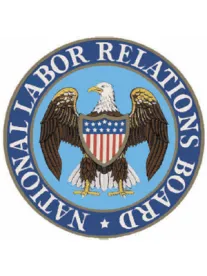In 2014, a majority of members of the National Labor Relations Board (NLRB or Board) issued sweeping changes to the rules in representation cases that govern secret-ballot elections conducted by the Board to determine whether employees wish to be represented by a labor union. Among other things, these rules shortened many of the deadlines that apply to the election process, in what was viewed by most as an effort by a then Democrat-controlled NLRB to make it easier for labor unions to win elections (which is why the rule changes were widely derided in the employer community as the “ambush” election rules). Our coverage on these rules was extensive – see here for more details about the specifics of these rule changes.
In December 2019, the NLRB, now comprised of a majority of Republican-appointed members, announced a “series of modifications to the Agency’s representation case procedures.” These modifications included unwinding some of the deadlines shortened by the 2014 rules, including providing more time for employers to object to election-related issues, such as the scope of the proposed bargaining unit, before the election is actually held, as well as additional time to conduct hearings on those objections and on voter eligibility issues pre-election, all intentioned, as stated by the Board, to “create a fairer and more-efficient election process.” Because the NLRB deemed the changes in the rule to be “procedural” in nature, the NLRB did not go through the formal rulemaking procedure under the Administrative Procedures Act (APA), which requires a period during which stakeholders can review and provide comments on proposed rules, and instead indicated that the rule would go into effect 120 days from the date it was published in the Federal Register, which was December 18, 2019, meaning that the rule was to be effective in April 2020.
The AFL-CIO sued the NLRB in March 2020, contending that the rule was not procedural in nature, and instead impact substantive rights under the National Labor Relations Act. The effective date of the rule was deferred until May 31, 2020 while the parties litigated the matter in federal court in Washington, D.C.
On May 30, 2020, the District Court issued a brief ruling (it indicated that a more detailed memorandum would be forthcoming) finding that those portions of the NLRB rule that changed timelines in the election process are not merely procedural, and therefore, not exempt from the notice-and-comment requirements of the APA. Those changes therefore are blocked, for now. The judge held however that other portions of the rule are indeed procedural and do not violate the APA. Although those portions were not vacated, the judge remanded the matter to the NLRB for reconsideration of its proposed rule in light of the court’s ruling.
The upshot therefore is that the 2019 rule is currently not in effect. Further litigation, or perhaps a revamp of the rule, or even a reissuance of the rule, this time with a notice-and-comment period, is possible.




 />i
/>i

